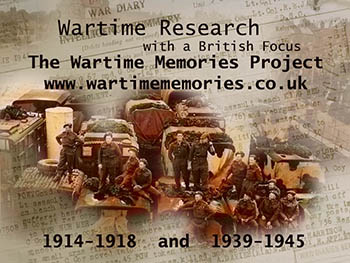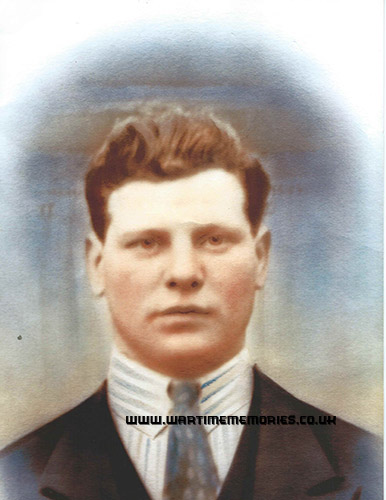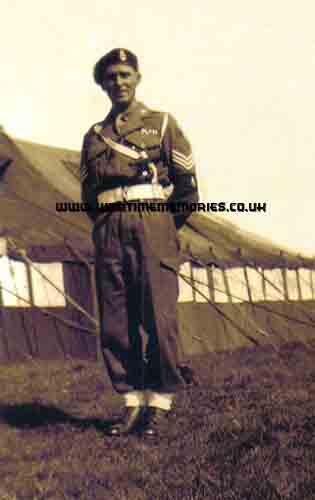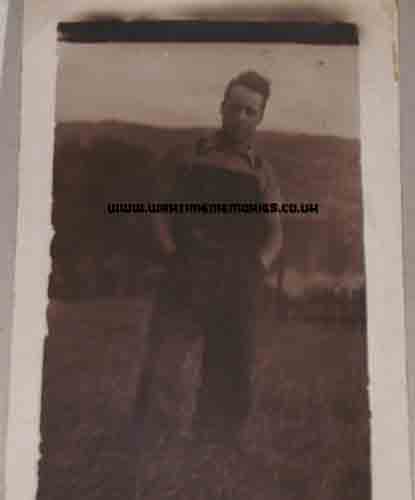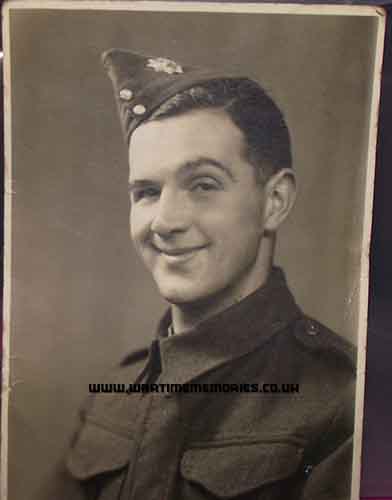|
|
|
|
|
The Wartime Memories Project is the original WW1 and WW2 commemoration website.
Announcements

- 1st of September 2024 marks 25 years since the launch of the Wartime Memories Project. Thanks to everyone who has supported us over this time.
- The Wartime Memories Project has been running for 25 years. If you would like to support us, a donation, no matter how small, would be much appreciated, annually we need to raise enough funds to pay for our web hosting and admin or this site will vanish from the web.
- 19th Nov 2024 - Please note we currently have a huge backlog of submitted material, our volunteers are working through this as quickly as possible and all names, stories and photos will be added to the site. If you have already submitted a story to the site and your UID reference number is higher than
264989 your information is still in the queue, please do not resubmit, we are working through them as quickly as possible.
- Looking for help with Family History Research?
Please read our Family History FAQs
- The free to access section of The Wartime Memories Project website is run by volunteers and funded by donations from our visitors. If the information here has been helpful or you have enjoyed reaching the stories please conside making a donation, no matter how small, would be much appreciated, annually we need to raise enough funds to pay for our web hosting or this site will vanish from the web.
If you enjoy this site
please consider making a donation.
Want to find out more about your relative's service? Want to know what life was like during the War? Our
Library contains an ever growing number diary entries, personal letters and other documents, most transcribed into plain text. |
|
Wanted: Digital copies of Group photographs, Scrapbooks, Autograph books, photo albums, newspaper clippings, letters, postcards and ephemera relating to WW2. We would like to obtain digital copies of any documents or photographs relating to WW2 you may have at home. If you have any unwanted
photographs, documents or items from the First or Second World War, please do not destroy them.
The Wartime Memories Project will give them a good home and ensure that they are used for educational purposes. Please get in touch for the postal address, do not sent them to our PO Box as packages are not accepted.
World War 1 One ww1 wwII second 1939 1945 battalion
Did you know? We also have a section on The Great War. and a
Timecapsule to preserve stories from other conflicts for future generations.
|
|
Want to know more about 2nd Battalion, Lancashire Fusiliers? There are:1364 items tagged 2nd Battalion, Lancashire Fusiliers available in our Library There are:1364 items tagged 2nd Battalion, Lancashire Fusiliers available in our Library 
These include information on officers, regimental histories, letters, diary entries, personal accounts and information about actions during the Second World War. |
|
Lt. Edward Smith VC, DCM. 2nd Btn. Lancashire Fusiliers (d.12th Jan 1940) Edward Smith was lilled in action on the 12th of January 1940, aged 41 and buried is in Beuvry Communal Cemetery, France. He was native of Maryport, Cumberland
The following details were given in the London Gazette supplement of October 18th, 1918: "Sjt. Edward Smith, D.C.M., Lancashire Fusiliers, while in command of a platoon, personally took a machine gun post with rifle and bayonet, killing at least six of the enemy, regardless of the hand grenades they flung at him. Later he led his men to the assistance of another platoon he saw in difficulties, took command, and captured the objective. During the counter attack next day he led forward a section and restored a portion of the line. His personal bravery, skill and initiative were outstanding, and his conduct throughout an inspiring example to all."
|
Fus. Arthur Edward Cox MM. 2nd Btn. Lancashire Fusiliers (d.24th Oct 1943) Citation for The Military Medal, Fusilier Arthur Cox, 2nd Lancashire Fusiliers.
On the 26th of February 1943, Fusilier Cox was in a leading section of his company which was carrying out a counter-attack against the enemy penetration South East of Mendjez Bab.
Fusilier Cox was wounded in the early stages of the engagement, but remained with his section, and continued to fight.
During the attack on the enemy's main position this fusilier advanced alone and on the flank and, in spite of heavy machine gun and mortar fire to which he was exposed, took up a position from which he could fire on the enemy, thus, in no small degree, contributing to the success of the operation.
Though wounded, he showed complete disregard for his personal safety, and his conduct, besides being of material assistance, was an inspiration and example to his comrades.
Aged 30, Arthur died of Wounds in Italy on 24th of October 1943.
|
Pte. James Burton 2nd Btn. Lancashire Fusiliers (d.24th Mar 1944) 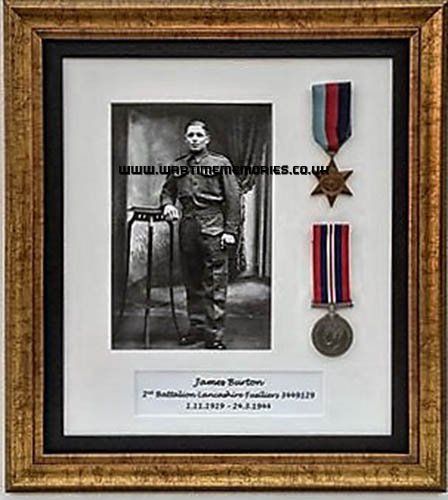 James Burton was wounded in the ill fated Dunkirk evacuation of 1940, captured and hospitalised in Belgium.
Following recovery from his injuries, he was transported by trains to Germany where he was a prisoner in several camps before being housed in Stalag VIIIB in annexed Poland.
Whilst there he was often forced to work outside of the camp on construction projects and following much unrest and repeated warnings to prisoners, he attempted escape and was shot dead on the 1944-03-24. Initially he was buried at the camp but after the war he was laid to rest in the Commonwealth Cemetery in Krakow.
Before the war Jim was a in a vigilante group who used to seek out fascists within his local community. These fascists were known as Blackshirts and were led in the UK by Oswald Mosley and were sympathetic to Hitler and his beliefs.
Jim was part of a local group of men who ensured Jewish citizens and others were not bullied and beaten on the streets.
His big frame, athleticism, ability to look after himself and sense of justice made him a very popular figure in Prestwich, despite his tender years, he was only nineteen when war broke out.
A true hero.
|
Cpl. James Harrison 2nd Btn. Lancashire Fusiliers Born in 1913 in Salford, my Father, James Harrison joined the territorials as a young man, when he was 18 he immediately enlisted in the Lancashire Fusiliers at Bury Barracks, posted to the 1st Battalion on the 30th October 1932. He sailed on a troopship on the 12th December 1935 to China until 10th December 1938. He was posted to the Lancashire Fusilier Depot on 11th Dec 1938, and transferred to Army reserve on 24th Feb 1939 after his engagement of 7 years.
He rejoined for temporary service and was posted to the 2nd Battalion on the 15th June 1939 then relegated to the Army reserve on the 15th August 1939. He was mobilized in Bury and posted to the infantry training centre on the 1st September 1939. He was appointed lance-corporal on the 1st August 1940 and posted to the 2nd Battalion, Lancashire Fusiliers on 20th March 1941.
Transferred to the Royal Army Service Corps on the 4th March 1942, he disembarked in Egypt on the 6th July 1942, attached to the 8th Army from 25th July 1942, he was posted to the 4th Troop Transport Company on the 1st Feb 1943.
Posted to the 335th Troop Transport Company RASC on 2nd of June 1944, he was promoted to War Substantive Corporal on the 27th of August 1945, and released to the Army reserve on 7th February 1946. He was discharged on completion of engagement and allocated to the general reserve on the 11th Feb 1954.
No further liability for recall on the 16th January 1958.
He had served in
China from 12th Dec 1935 until 10th Dec 1938 and during WW2 in the
Libya, Tunisia and Egypt from 8th of May 1942 until 30th of October 1945. He was awarded the Africa Star with 8th Army clasp, Defence medal, 1939/45 Star and War Medal 1939/45. His
Military conduct was Exemplary.
|
L/Cpl. James Ellwood 2nd Btn. Lancashire Fusiliers (d.5th Oct 1943) James Ellwood served with the 2nd Lancashire Fusiliers and died in service in Italy in 1943 aged 34 years.
He is buried in Sangro River War Cemetery in Italy. His headstone reads: Until the day break.
|
Fus. George Stephens 2nd Btn. C Coy. Lancashire Fusiliers In Italy we were involved in the siege of Monte Cassino. The Americans had captured the monastery at the top of Mount Cassino but the Germans had counter-attacked and the Americans had retreated.
We were down near the River Rapido and moved up the mountain toward the monastery. On the other side the New Zealand Expeditionary Force stopped any further German attack, but the enemy still held the monastery.
We (together with various other regiments, including a Canadian tank regiment) laid siege. We were there for about three months. The ground was too hard to dig so we had little defence except rocks and dips in the ground. During the day it was too dangerous to move, we couldn't even go to the toilet. We could hear the Germans singing Lily Marlene to torment us. Nothing could be heated. We couldn't even have a cup of tea!
Food was brought up to us (at night of course) by a Sikh regiment, Johnny Sikhs we used to call them. Only one of them, their Lance-Corporal, could speak any English.
As a runner, I was detailed to go down the mountain to Battalion HQ to fetch up the Sikhs and then to guide them down again. My mate Jacko was sent down once but they wouldn't come up with him, so I had to go down all the time! One night I arrived back with them at Battalion HQ to find I'd lost one of them. They all went crazy and were all set to go and find him, but our Regimental Sergeant Major wouldn't allow it for fear of Jerry patrols. (He used to give the Sikhs teaspoonfuls of rum and sometimes I got one). Anyway, I eventually found the missing Sikh curled up in a dip with Jacko. He had to wait till next nightfall to go back.
About a week later we were relieved by a Recky platoon. (They used to reconnoitre what was going on and then report back to the commanding officers). This meant we could have a break at HQ. I collected some mail and found I had a copy of the Western Gazette, my local paper. A sergeant from the Recky platoon spotted me with it and introduced me to one of his soldiers from Yeovil named Tommy Tucker. "What's it like up there?" Tommy asked me. "Oh, cushy", I replied. I took them up to the monastery that night and Tommy was in a forward position. About six weeks later I met up with the Recky sergeant and he said "Your mate don't think much of you. Ten minutes after you left they all got taken prisoner by a Jerry patrol!"
In the middle of May we were due to go to Concerta for a rest. A troupe of Polish solders were due to take over from us, but before they could do so the Allies started to attack the Monastery. The Poles attacked from the top and we, the Lancashire Fusiliers, from the back. We managed to make contact with the Poles and then, early on the 16th May, Jerry counter-attacked.
My Company, C Company, was getting a real hiding from two tanks and about twenty infantry men. They wiped out one platoon completely and were starting on another. But then Frank Jefferson went out in front of a tank and fired a PIAT mortar right into it. The other tank, and about twenty infantry retreated. Our Major Kevin Hill ordered us to charge and we took out all twenty infantrymen completely.
On 17th of May at 10 am a flag appeared on top of the monastery and the Germans were retreating. We charged inside and took prisoners.
Then we carried on up a main highway to Rome and that was the end of the Cassino battle.
My friend, Frank Jefferson, was awarded the V.C. George Stephens.
|
Pte. James Joseph O'Connell 2nd Btn. Lancashire Fusiliers James O'Connell served with 2nd Btn. Lancashire Fusiliers. He ate the PoW camp cat due to hunger.
|
Pte. Alfred Platt 2nd Battalion Lancashire Fusiliers My late father, Alf Platt, was part of the 2nd Battalion Lancashire Fusiliers who were part of the rear guard action to hold back the Germans during the evacuation of Dunkirk.
My father very rarely spoke of his ordeal but I do know that he was captured and marched to the North of Poland where he spent 5 years in the P.O.W camp at Danzig, now called Gadansk. For several Months my late mother was told that he was "missing in action, believed killed", this was later corrected when she learned that he was a P.O.W.
it was only when a Dutch civilian gave him a piece of paper and asked him to write his name on it, that my Mother was then informed by the Red Cross that her husband had been seen alive, she was later advised that he was a P.O.W in Stalag XX3A. My Mother and her 5 year old daughter did not see him again until he was liberated in 1945.
My Father spoke very little about the war or his ordeal as a P.O.W and despite reading several accounts of Dunkirk, cannot find many mentions of the soldiers who stayed behind and were captured, we only read about the hero's of the R.A.F, the Royal Navy and the little ships, and nothing much about those left behind.
If anyone can shed any light on the Lancashire Fusiliers role at Dunkirk or the prison camp at Danzig and the march to get there, I would very much appreciate it.
Whilst we all (quite rightly) honour those brave young men of the R.A.F and the little boat crews etc in the evacuation, let's not forget those heroes who gave their lives, or 5 years of their lives to facilitate that evacuation.
|
Sgt. Leslie Redfern MM. 2nd Btn. Lancashire Fusiliers Leslie Redfern served with the 2nd Battalion, Lancashire Fusiliers and was awarded the Military Medal. His citation reads: "In August 1943, Sgt. Redfern's Platoon in attacking a prominent feature between Bront-Malleto came under very heavy and accurate mortar and shell-fire. The Platoon took cover behind a tall isolated rock on the enemy side of the feature. Sgt. Redfern, with total disregard for his own safety climbed out from cover and round the rock to observe where enemy fire was coming from. He remained on the exposed face of the rock with mortar bombs falling 30 yards from him, until he had located enemy mortar positions. This information was got back to the Artillery O.P. and the enemy guns were silenced. Through this N.C.O.'s very gallant action, the Platoon was able to get forward and capture its objective."
Details were published in the Supplement to The London Gazette of 16th November 1943.
|
Cpl. Leonard Clark 2nd Btn. Lancashire Fusiliers (d.21st May 1942) The only the information about Leonard Clark was told to me by my granny Ethel (Leonard's wife). I remember asking as a small child where grandad was. My granny answered he was run over by a tank in the war and that was it.
I know his name is on the War Memorial in the town. My dad told me to go and look, so I did and found his name. He has always been a mystery, so now in 2016 I have decided to see if I can learn his story.
All his family are no longer with us. I became a NAAFI girl and was an Army wife for over 21 years, I think I owe it to his memory to find out as much about his life, also where he is buried. Also what happened to him. Back then, asking my gran where he was, I remember (even though I was young) her tone and manner and I knew not to ask again. So it became a subject not to be spoken about, back in my day that was it.
|
Recomended Reading.Available at discounted prices.
|
|
|




